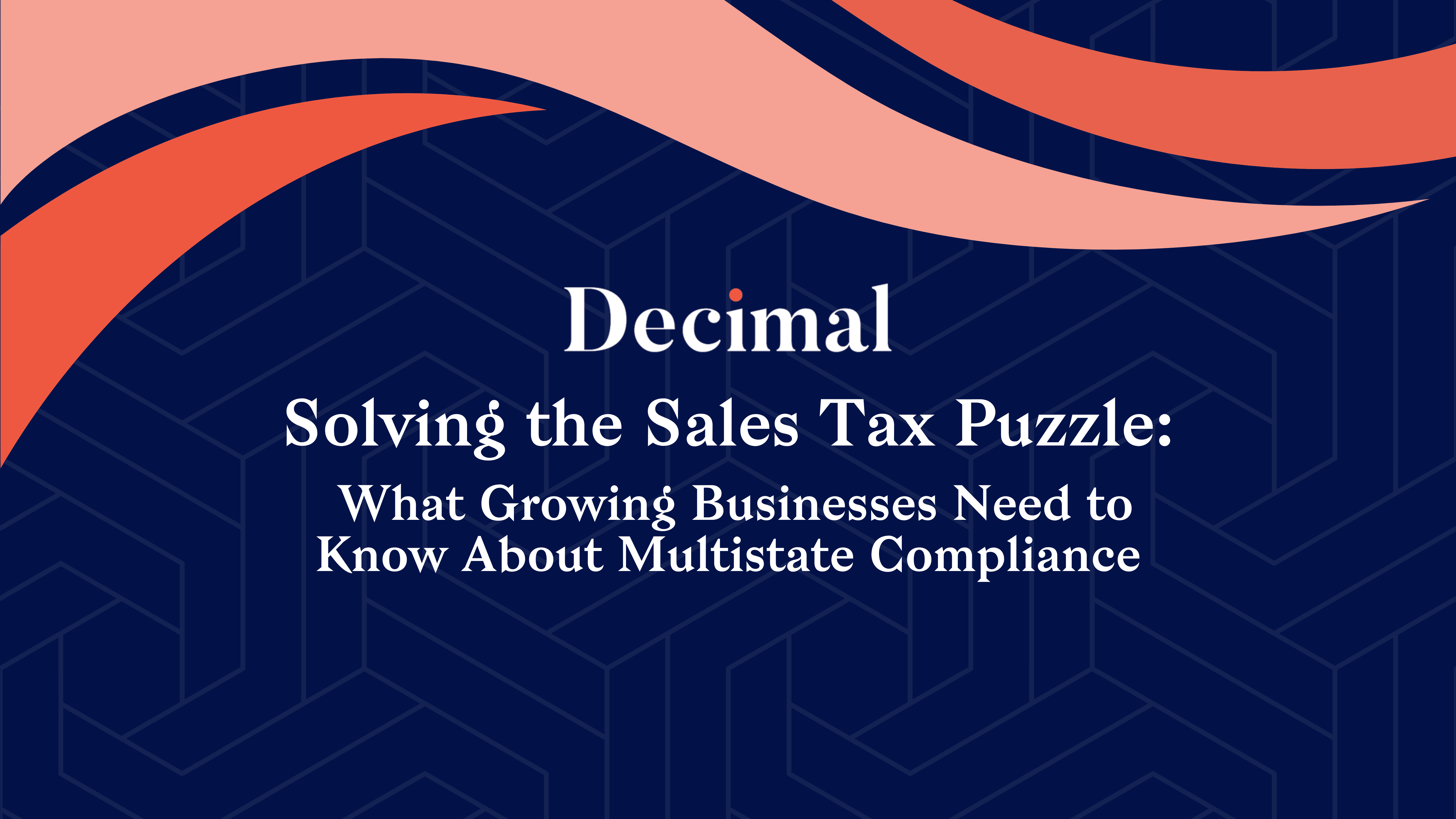What Is Nexus—and Why It Matters
Nexus is the legal term for a business connection that creates a sales tax obligation in a given state. Once you establish nexus, you must register, collect, file, and remit sales tax there.
There are two main types:
1. Physical Nexus
- Office, warehouse, or store locations
- Employees or contractors working in the state
- Inventory stored (including via 3PL or fulfillment centers)
2. Economic Nexus
- Triggered by revenue or transaction thresholds (e.g., $100,000 in sales or 200+ transactions)
- This applies even if you have no physical presence
Most states have implemented economic nexus laws since the 2018 South Dakota v. Wayfair Supreme Court ruling. That means even small businesses can be responsible for collecting sales tax in dozens of states based solely on online sales.
How to Determine Where You Owe Sales Tax
Start with a sales tax nexus analysis that evaluates:
- Where your employees, contractors, or warehouses are located
- Where you ship goods or deliver services
- Whether you've crossed economic nexus thresholds in any state
If you meet the threshold, you're required to:
- Register with the state's Department of Revenue
- Collect the correct tax rate based on destination or sourcing rules
- File returns according to each state's schedule (monthly, quarterly, or annually)
Failing to register and collect can result in a multi-year liability—including back taxes, interest, and penalties.
Common Sales Tax Mistakes That Scaling Companies Make
As companies grow, sales tax errors often creep in unnoticed. Watch out for:
- Applying a flat tax rate across all sales: Tax rates differ by state, county, and city.
- Incorrect product taxability: Software, professional services, and digital products may or may not be taxable, depending on the state.
- Not updating tax calculations after crossing nexus thresholds: States don't send reminders—you're responsible for monitoring this yourself.
- Mismatched filing frequencies: Some states require monthly filings, others quarterly. Missing due dates leads to automatic penalties.
These missteps are not just technical—they create financial risk that compounds as your operations expand.
How to Build a Scalable Sales Tax Strategy
Managing sales tax manually becomes unworkable as you add complexity. Here's how to prepare for multistate compliance:
1. Use a Sales Tax Automation Tool
Platforms like Avalara, TaxJar, and Sovos integrate with your ERP or e-commerce system to:
- Track nexus thresholds
- Calculate accurate tax rates at checkout
- File and remit taxes on your behalf
2. Maintain Detailed Sales Records by Jurisdiction
Ensure your accounting system tracks gross sales, taxable sales, and exemptions by state. This supports accurate filings and reduces audit risk.
3. Review Product and Service Taxability Regularly
Taxability rules change frequently—especially for SaaS, digital goods, and consulting services. Partner with a tax advisor to stay up to date.
4. Establish a Quarterly Nexus Review Process
Assign a team member or outsourced accounting partner to monitor your progress toward nexus thresholds and initiate registration when needed.
5. Don't Ignore Past Liabilities
If you've been operating in a state without collecting tax, consider a Voluntary Disclosure Agreement (VDA). This lets you come forward, limit the lookback period, and avoid penalties.
When to Bring in an Expert
The cost of noncompliance often outweighs the effort required to get it right. If your business sells in 5+ states—or if you're expanding your product lines or fulfillment methods—it's time to consult with a tax professional.
A sales tax advisor or experienced accounting partner can:
- Conduct a nexus study
- Register your business where required
- Set up your systems for automated compliance
- Handle filings and represent you during audits
Conclusion
Multistate sales tax is one of the most complex—and frequently underestimated—challenges for growing businesses. Getting ahead of your obligations keeps you compliant, audit-ready, and focused on scaling, not scrambling.
If you're looking for expert guidance to simplify your tax filing process, schedule a time with a Decimal expert at https://www.decimal.com/contact-us. We'll help you build a sales tax strategy that fits your business now—and scales with it later.
Getting started in days.
Ready to simplify your accounting? Schedule a call with our team and explore your options. We’d love to hear from you!

